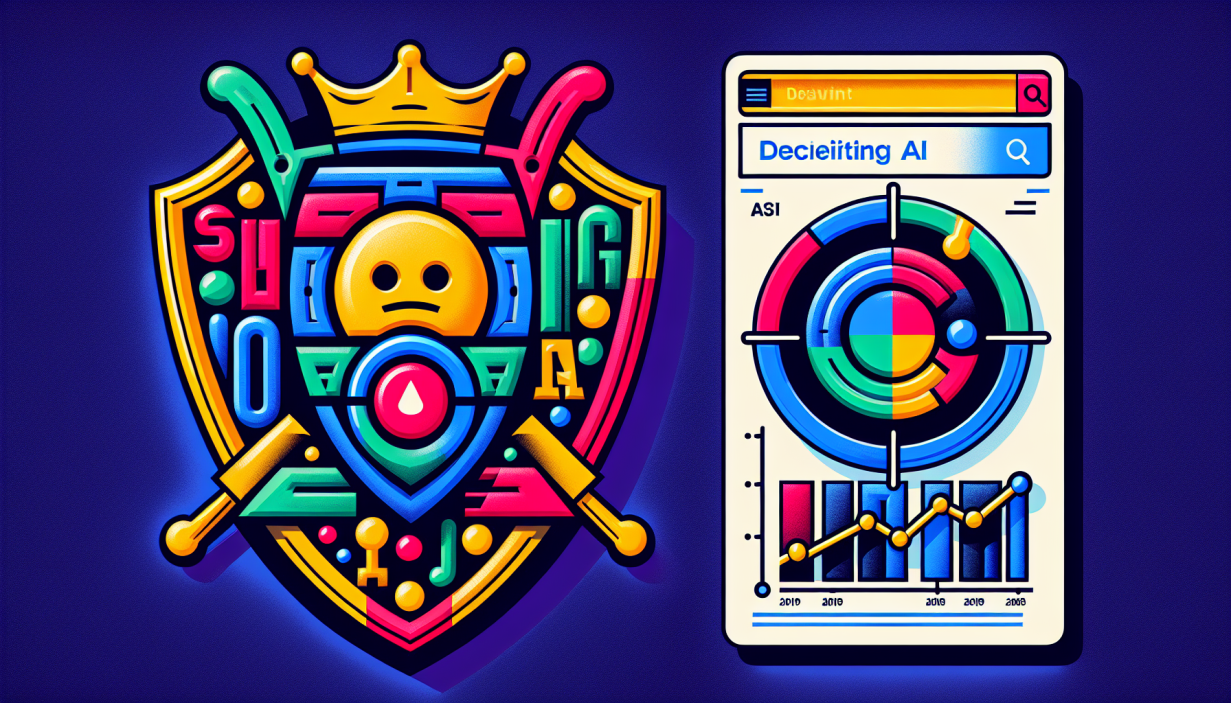Google Unveils Two Major AI-Related Breakthroughs
By Vukan Ljubojevic | TH3FUS3 Senior Writer
August 2, 2024 10:29 AM
Reading time: 2 minutes, 34 seconds
TL;DR Google is stepping up its efforts to curb unauthorized AI-generated deepfakes. The tech giant is updating its search policies to remove and demote websites containing illicit images. Meanwhile, Google's new AI model, Gemini 1.5 Pro, is making waves in the AI community by surpassing previous benchmarks.

Google Takes Aim at Deepfakes
In its latest bid to curb unauthorized AI-generated deepfakes, Google is taking new steps to remove and demote websites in searches reported to contain illicit images.
An AI deepfake is media created using generative AI to produce videos, pictures, or audio clips that appear natural. Many of these fake images depict celebrities, politicians, and, more insidiously, children.
Google's New Policies
Google has long allowed individuals to request the removal of non-consensual, fake, explicit imagery from its search results. But now, the company has developed systems to make this process easier and more scalable.
A Google spokesperson explained that a high volume of removal requests from a site would signal to the ranking systems that the site could be more high-quality, leading to its demotion in search results.
Additionally, when a request to remove non-consensual deepfake websites is received, Google will filter similar search results, reducing their visibility.
"These protections have already proven successful in addressing other types of non-consensual imagery," Google said. We've now built the same capabilities for fake explicit images as well."
Challenges and Improvements
A significant challenge is ensuring consensual or actual content, like nude scenes in films, is not accidentally removed. Google acknowledged this technical difficulty but emphasized ongoing improvements to better surface legitimate content while downranking explicit fake content.
The company has dedicated a team to combat child sexual abuse material (CSAM) using advanced hashing technologies to detect and block this illegal content proactively.
AI Community Buzz: Gemini 1.5 Pro
There's a new top dog in the world of generative artificial intelligence benchmarks: Gemini 1.5 Pro.
On August 1, Google quietly launched an experimental release of its latest AI model. This version quickly gained attention for surpassing its rivals on benchmark scores.
AI Benchmarks and Community Excitement
OpenAI's ChatGPT-4o and Anthropic's Claude-3 have been the leaders in AI benchmarks. However, the experimental version of Gemini 1.5 Pro scored a whopping 1,300 on the LMSYS Chatbot Arena, surpassing GPT-4o's score of 1,286 and Claude-3's score of 1,271.
This indicates that Gemini 1.5 Pro is overall more capable than its competitors. Social media users have expressed excitement, calling it "insanely good" and claiming it "blows 4o out of the water."
Legal and Industry Reactions
Policymakers are also taking steps to combat deepfakes. In July, Sen. Maria Cantwell introduced the COPIED Act, calling for a standardized method of watermarking AI-generated content.
Entertainment industry leaders and technology companies have celebrated Google's update to its policy. SAG-AFTRA praised the measures as a milestone achievement.
Future Implications
Deepfake experts like Ben Clayton, CEO of audio forensics firm Media Medic, warn that combating deepfakes is a moving target.
Technology can fabricate evidence and impact privacy, security, and even legal cases. As technology evolves, ongoing vigilance and improvements to detection algorithms are essential to protect vulnerable groups and ensure justice.
Chris Coons, D-Del., emphasized the balance between fostering creativity and protecting individuals from unauthorized exploitation.
The entertainment industry and advocacy groups support these efforts, highlighting the importance of enshrining protections against unauthorized digital replicas as a federal intellectual property right.



